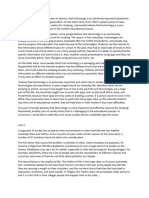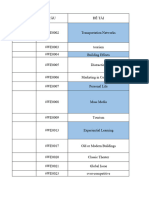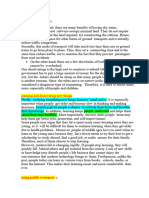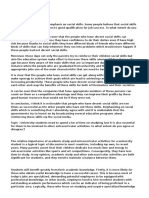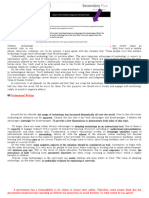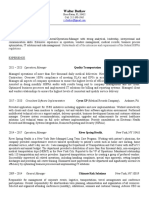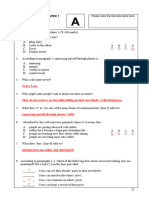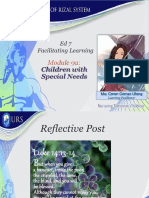0% found this document useful (0 votes)
24 views18 pagesTopic 1
The document discusses the importance of preserving heritage, highlighting its role in understanding identity and cultural roots. It outlines challenges such as urban development and environmental issues, and suggests solutions including education, legal protections, and technological advancements. The document emphasizes that preserving heritage is essential for future generations to connect with their history and communities.
Uploaded by
Đặng Yến LinhCopyright
© © All Rights Reserved
We take content rights seriously. If you suspect this is your content, claim it here.
Available Formats
Download as DOCX, PDF, TXT or read online on Scribd
0% found this document useful (0 votes)
24 views18 pagesTopic 1
The document discusses the importance of preserving heritage, highlighting its role in understanding identity and cultural roots. It outlines challenges such as urban development and environmental issues, and suggests solutions including education, legal protections, and technological advancements. The document emphasizes that preserving heritage is essential for future generations to connect with their history and communities.
Uploaded by
Đặng Yến LinhCopyright
© © All Rights Reserved
We take content rights seriously. If you suspect this is your content, claim it here.
Available Formats
Download as DOCX, PDF, TXT or read online on Scribd
/ 18














